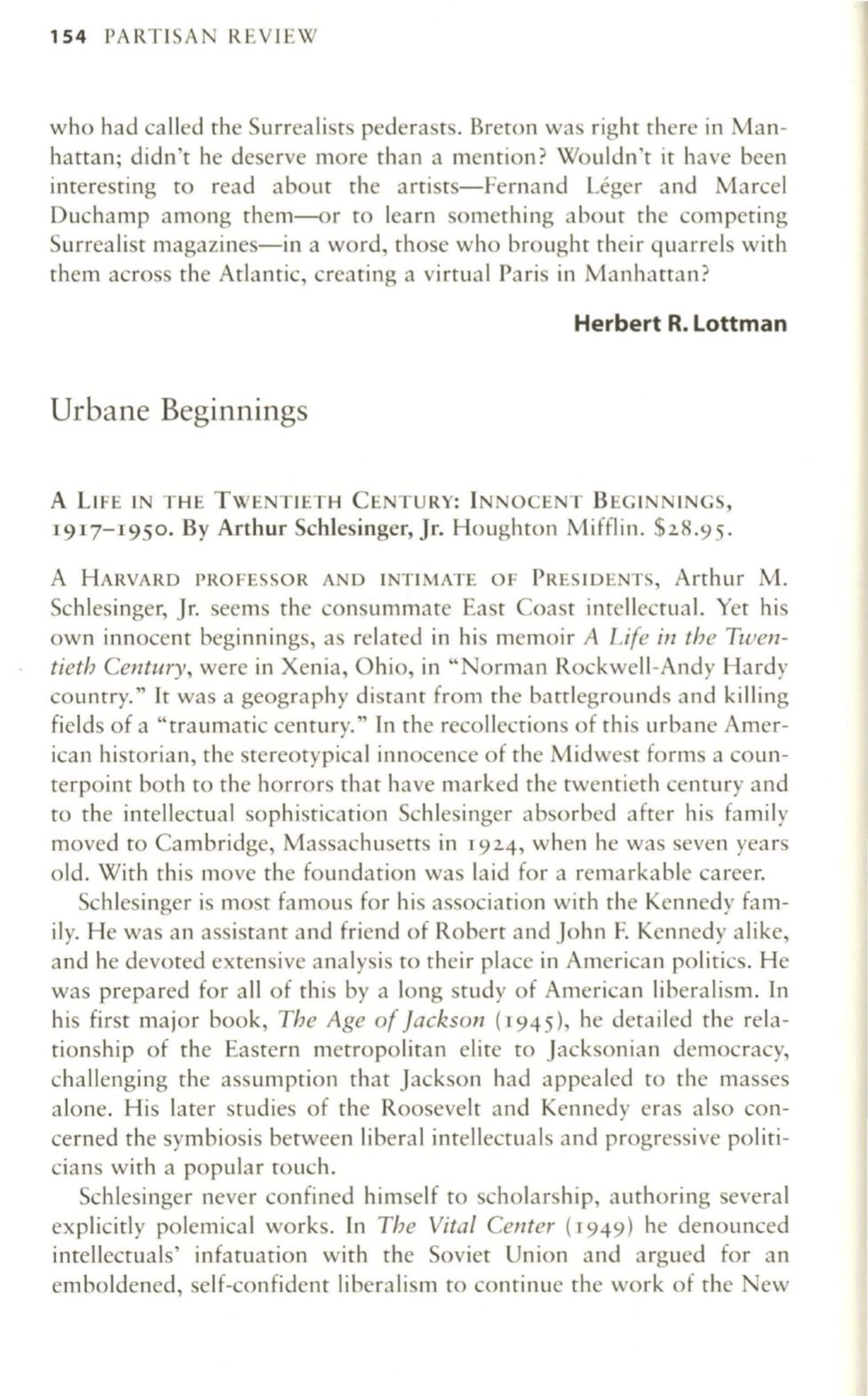
1 S4
PARTISAN REVIEW
who had called the Surrealists pederasts. Breton was right there in Man–
hattan; didn't he deserve more than a mention? Wouldn't it have been
interesting to read about the artists-Fernand Leger and Marcel
Duchamp among them-or to learn something about the competing
Surrealist magazines-in a word, those who brought their quarrels with
them across the Atlantic, creating a virtual Paris in Manhattan?
Herbert R. Lottman
Urbane Beginnings
A
LIFE IN THE TWENTIETH CE TURY: IN OCENT BEGINNINGS,
1917-1950.
By Arthur Schlesinger, Jr. Houghton Mifflin.
$28.95.
A
HARVARD PROFESSOR AND INTIMATE OF PRESIDENTS,
Arthur M.
Schlesinger, Jr. seems the consummate East Coast intellectual. Yet his
own innocent beginnings, as related in his memoir
A Life in the Twen–
tieth Century,
were in Xenia, Ohio, in "Norman Rockwell-Andy Hardy
country." It was a geography distant from the battlegrounds and killing
fields of a "traumatic century." In the recollections of this urbane Amer–
ican historian, the stereotypical innocence of the Midwest forms a coun–
terpoint both to the horrors that have marked the twentieth century and
to the intellectual sophistication Schlesinger absorbed after his family
moved to Cambridge, Massachusetts in
1924,
when he was seven years
old. With this move the foundation was laid for a remarkable career.
Schlesinger is most famous for his association with the Kennedy fam–
ily. He was an assistant and friend of Robert and John
F.
Kennedy alike,
and he devoted extensive analysis to their place in American politics. He
was prepared for all of this by a long study of American liberalism. In
his first major book,
The Age of Jackson
(1945),
he detailed the rela–
tionship of the Eastern metropolitan elite to Jacksonian democracy,
challenging the assumption that Jackson had appealed to the masses
alone. His later studies of the Roosevelt and Kennedy eras also con–
cerned the symbiosis between liberal intellectuals and progressive politi–
cians with a popular touch.
Schlesinger never confined himself to scholarship, authoring several
explicitly polemical works. In
The Vital Center
(r949)
he denounced
intellectuals' infatuation with the Soviet Union and argued for an
emboldened, self-confident liberalism to continue the work of the ew


